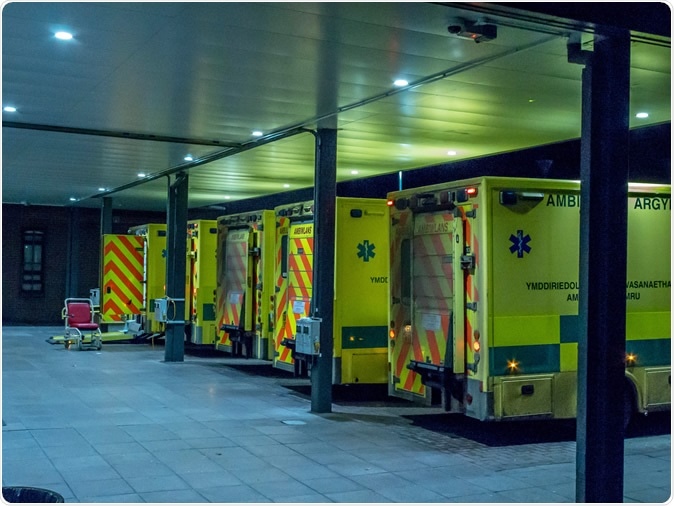The coronavirus disease (COVID-19) outbreak has spread dramatically around the globe, infecting more than 92,000 people and killing more than 3,000.
A survey of more than 1,600 doctors in the United Kingdom has shown that more than 99 percent think that the UK is not prepared to face a coronavirus outbreak. The doctors are worried that the NHS is already under immense pressure, and that resources are already stretched. The limited number of intensive care beds across the country will not cope with an increased demand for medical care amid a coronavirus outbreak. The total number of NHS hospital beds in England has more than halved over the past 30 years, from around 299,000 to 142,000, while the number of patients treated has increased significantly.
Some of the common concerns cited include a shortage of beds, problems coping with increased demand, and inadequate staffing levels. Further, the doctors worry that the laboratory space and supply for testing is not enough, in case a pandemic ensues.
“The truth is the NHS has already been brought to its knees, and many doctors fear that our health system simply won’t cope in the event of an influx of coronavirus patients,” Dr. Rinesh Parmar, the chair of the Doctors’ Association UK, said.
“With nearly 10,000 doctor vacancies and 43,000 nurse vacancies [in the NHS in England], the NHS is already understaffed to deal with demand. A&E waiting times are the worst on record. Intensive care units are at capacity and are even struggling to admit patients who are critically unwell or awaiting cancer surgery,” he added.

Image Credit: Paul Nicholas UK / Shutterstock
Healthcare system problems
Health officials need to help the public understand that the coronavirus is of concern, and since it is a new illness that needs to be studied thoroughly, the inadequate health resources of the country should also address. The UK and the NHS have modern medical facilities, but there are problems faced by the healthcare system.
For one, the NHS has been struggling to meet the demand and need for care, especially in the sudden increase of coronavirus cases. Also, hospitals in the country have too few intensive care units, and these areas are also understaffed. General practitioners do not have enough appointments to assess and check patients faster.
New plan to combat coronavirus
The coronavirus disease, caused by the pathogen sudden acute respiratory syndrome coronavirus 2 (SARS-CoV-2), has originated in Wuhan in Hubei Province in China. The province is shut down since January, with its number of deaths totaling to 2,835 people, while those infected surpassed 80,000.
Globally, the coronavirus has spread to 75 countries outside of mainland China. South Korea reported the highest number of infections with 5,816 people who tested positive with the coronavirus. Italy and Iran reported a rapid increase in the infection toll with 2,502 and 2,336 cases, respectively.
The United Kingdom has 52 confirmed cases of the coronavirus. The government has formulated a plan in the hopes of combating the deadly virus.
Understaff solutions
The NHS is facing the lack of healthcare professionals to care for COVID-19-related cases, which has been rapidly spreading. In the advent that the country faces a coronavirus outbreak or if the disease will be declared a pandemic by the World Health Organization (WHO), hospitals may need more doctors to cater to all the patients.
To address this problem, the UK government plans to recall retired doctors to help deal with the coronavirus outbreak. The British Prime Minister Boris Johnson urged the public to help stop the disease spread by asking doctors and nurses to come out of retirement if the virus arrives and affects the current NHS workforce.
Meanwhile, Matt Hancock, the Secretary of State for Health and Social Care, said that the COVID-19 outbreak would get worse. However, it may take several weeks more before the virus is widespread. School closures and canceling events will happen by that time, but at the moment, there is no directive to cancel significant public events.